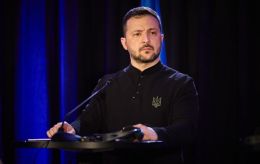Trump's soft spot for Putin? What's behind America's sanctions delay
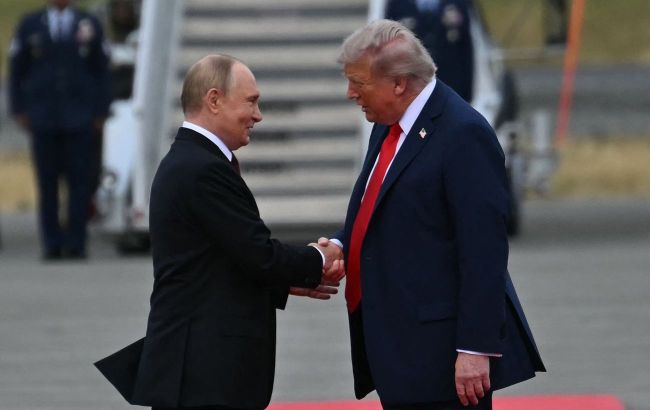 Photo: Donald Trump and Vladimir Putin (Getty Images)
Photo: Donald Trump and Vladimir Putin (Getty Images)
Trump’s intense diplomatic activity in August did not bring an end to Russia’s aggression against Ukraine. What's more, his efforts are now on pause. Why this happened and what comes next — read in RBC-Ukraine's material below.
"Donald Trump said he was ready to move to the second stage of sanctions against Russia." Headlines like these spread across Ukrainian and global media on Sunday evening.
It turns out this refers to a "second stage" of anti-Russian sanctions from the current White House. The first stage, apparently, is the recent imposition of tariffs on India, which had virtually no impact on the course of the war.
But the main problem isn’t that. "Trump said he is ready" — this is an obvious exaggeration. In reality, the US president merely responded briefly to a reporter's question, saying "Uh-huh, I'm ready."
Those who have followed Trump for a long time know well: when he’s really ready to commit to a serious decision, everyone learns about it not from a casually thrown remark beside Air Force One in response to a reporter. Rather, Trump will announce it himself and then repeat it several times over in the following days.
So for now, it’s best to temper overly optimistic expectations about Trump taking bold measures. Currently, he appears to be employing his favorite negotiation tactic — waiting.
Trump is watching
All last week, Trump made his usual remarks: that he "is watching the situation closely" and "has learned interesting things (about the war)," and that everyone else will learn about them "in the coming days," and so on.
Credit where it’s due — American journalists keep steering the conversation with Trump back to Russian aggression against Ukraine, even when domestic topics are dominating headlines.
But they, too, cannot change the core issue: once again, Trump fails to draw the obvious conclusion. Russia is openly disregarding his diplomatic efforts and intensifying attacks on Ukraine. Yet instead of concluding that it’s Putin who does not want peace, Trump prefers to "watch the situation."
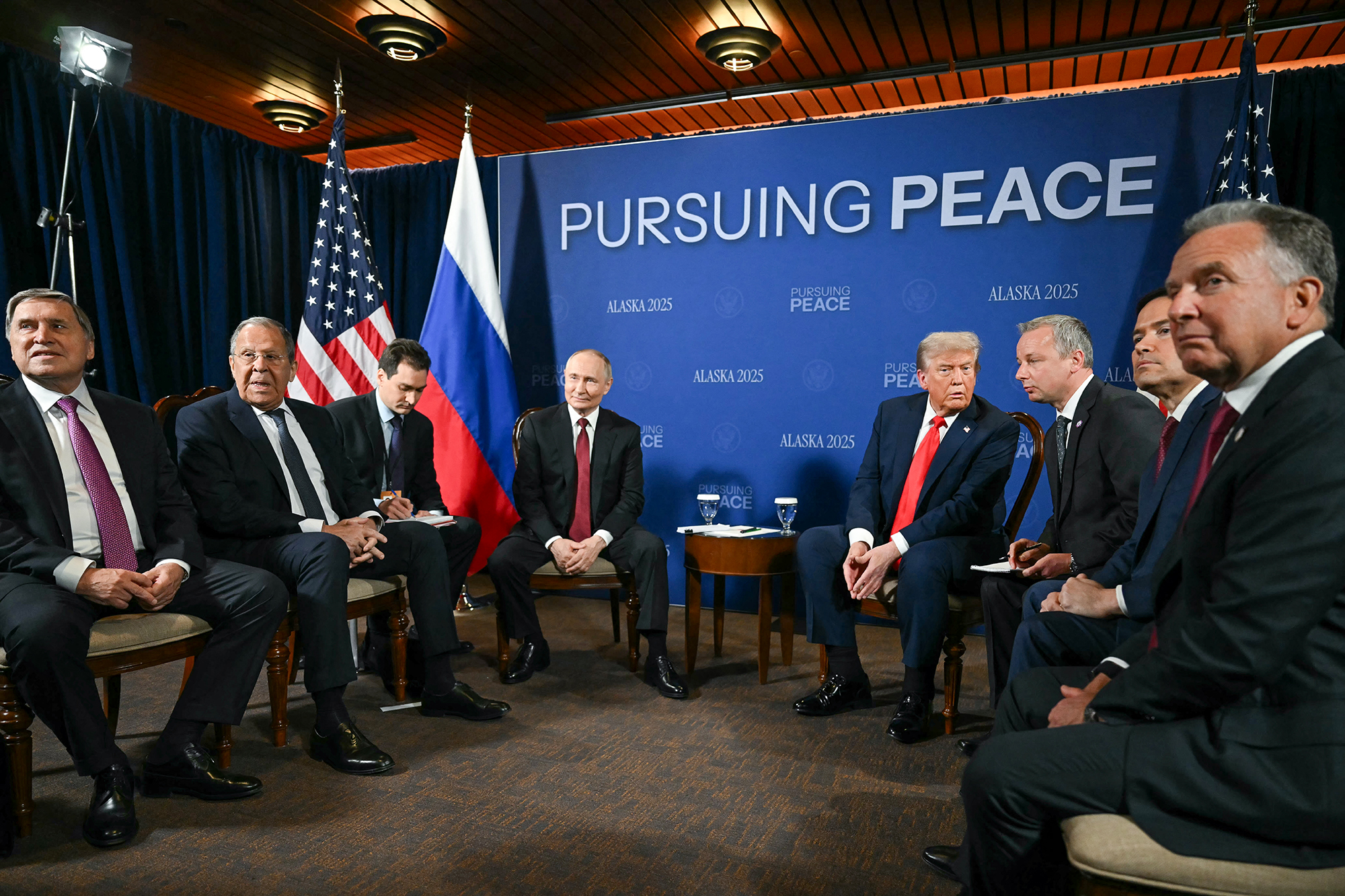 American and Russian delegations in Alaska (photo: Getty Images)
American and Russian delegations in Alaska (photo: Getty Images)
Trump certainly has the tools to influence this situation. The most obvious — secondary sanctions targeting China, Russia’s principal global ally. But that’s not the only instrument.
The leader of the United States could employ compelling arguments to make Putin reconsider continuing the war — and these arguments wouldn’t have to be public.
Yet Trump seems hesitant — perhaps fearing adverse effects of sanctions on the US economy, or reluctant to spoil what he has called his "fantastic" relationship with Putin. As a result, he continues to wait.
In recent days, there have been small signs of forward movement. US Treasury Secretary Scott Bessent stated he’s ready to increase pressure on Russia’s economy. A European delegation has also traveled to Washington to discuss future joint sanctions against the Kremlin. These measures may be modest, and not cripple Russia’s economy — but they signal a revival of transatlantic unity.
Still, in Washington, unity largely means urging Europe to act against Russia — even as the US itself hasn’t adopted policies like the EU’s price cap on Russian oil.
Early this week, Trump made more announcements: visits by European leaders to Washington, and another conversation with Putin. But by common calendars (unlike Trump’s), it’s already Wednesday — and nothing has happened. Even if leaders arrive soon and a call happens, that does not guarantee a shift in the status quo.
Russia escalates
In August, when Trump resumed diplomacy, Russia initially played along — halting strikes on Kyiv and offering vague hints of possible negotiations (on their terms, of course).
But once it became clear that Trump’s efforts would yield no results, Russia stopped holding back.
Rhetorically, terms like 'demilitarization-denazification, new regions, and illegitimate Zelenskyy reappeared. Moscow named itself as the only possible venue for talks — an inherently unacceptable option.
Militarily, Kyiv and rear cities endured intense strikes again, including on the Cabinet building — a clear escalation. Just before winter, hits on energy infrastructure resumed. Russia’s mass drone incursion into Poland tested NATO’s reaction and added further escalation.
As Putin declared, if Russia can’t achieve its goals otherwise, it will "try by military means."
Following his visit to China, Putin appears emboldened — possibly reassured of support behind closed doors — and assumes he can continue the war.
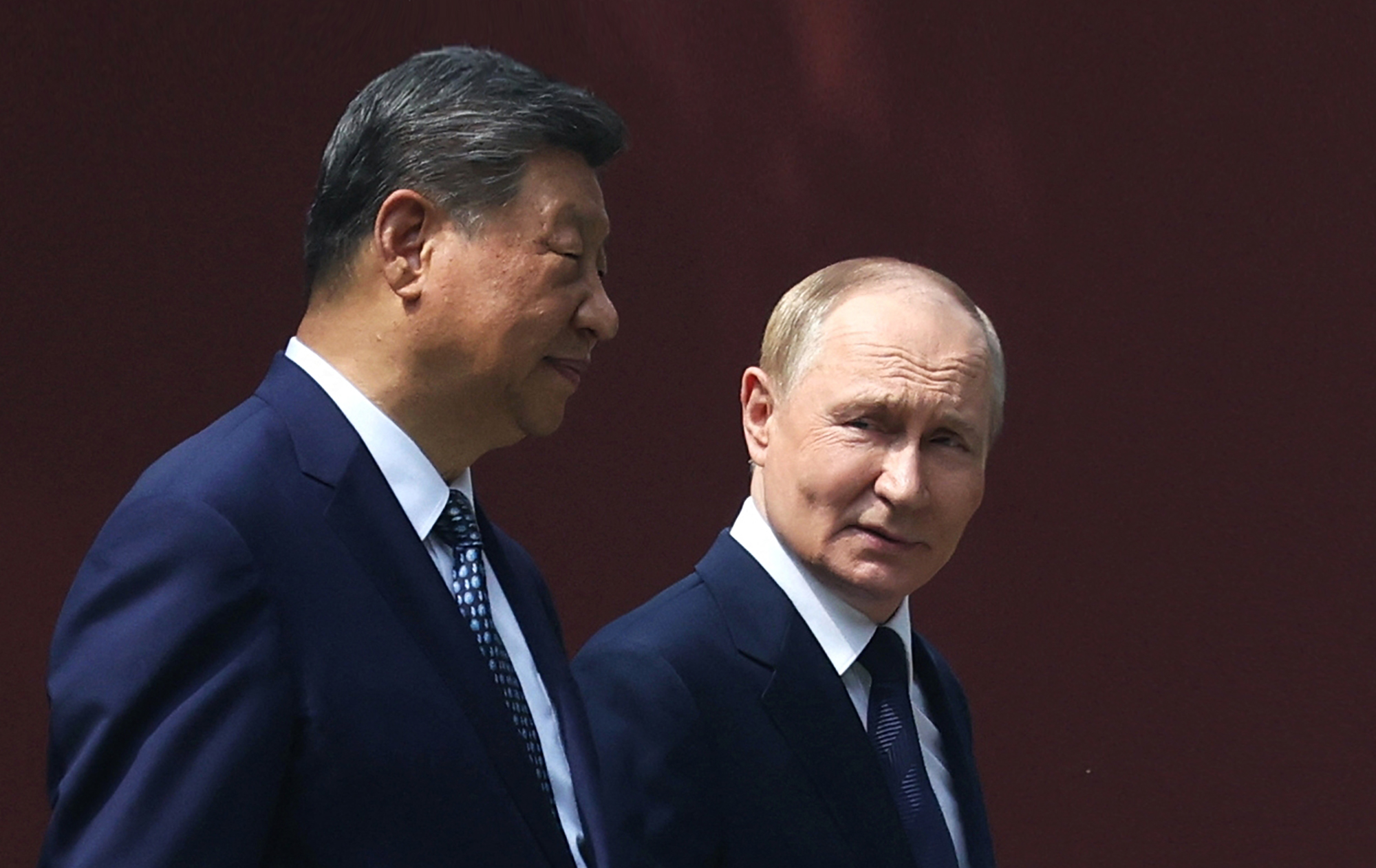
Vladimir Putin and Xi Jinping in China (photo: Getty Images)
As Volodymyr Zelenskyy told, Putin assured the Americans that in the next 3–4 months, that is until the New Year, he is capable of completely occupying the Donbas. It is not excluded that he may really believe in this – to improve “positions on the ground,” and then, depending on the situation, to continue the offensive further, or to roll out (in the ideal case – jointly with Trump) new, already much harsher conditions for Ukraine. At least, such logic of the aggressor was described to RBC-Ukraine by one of the interlocutors in the military-political leadership of the country.
Ukraine seeks guarantees
Ukraine itself, under the current conditions of ephemeral negotiations and real war, is trying to squeeze out the maximum possible. Mocking ultimatums of the Russians are rejected, work on obtaining new armament continues, especially of air defense systems, and attempts to reach out to Trump do not stop.
For now, a certain progress is visible only in the question of security guarantees – at minimum, this very term already does not cause such fear in European allies. Ukraine and Europe, in the last several months, have acted, fortunately, with a single front.
Although determined European allies, as before, are lacking. Despite promises to help Ukraine with security even after the war, the majority of the “determined” from the eponymous “coalition” find a mass of reasons why they will not be able to send their troops to Ukraine. Not to mention fighting or at least being somewhere in the zone of conflict, in general, in no way.
But the very question about security guarantees in the format of some contingents is rather secondary – after all, this presupposes a peace agreement or at least a stable truce. But to the achievement of this very peace/truce guarantees help only indirectly. All the more so, that in the opinion of the aggressors, no guarantees to Ukraine are needed in principle, if Russia promises not to attack it anymore. And since guarantees in no way help solve the key question, the territorial one.
And as RBC-Ukraine already wrote, precisely the topic of territories (and not some status for language-church) – this is the main stumbling stone.
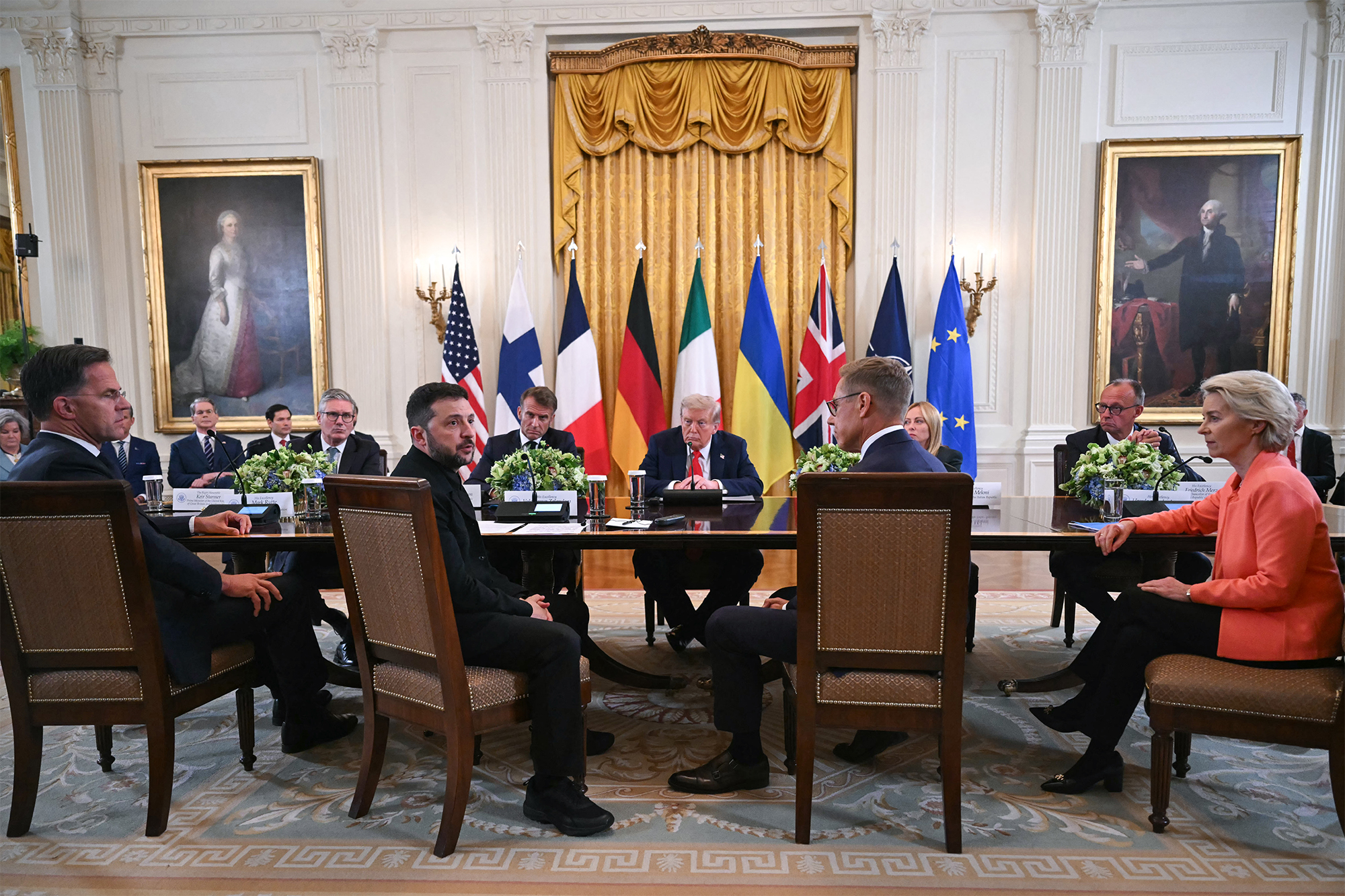
Meeting of Zelenskyy and European leaders with Trump (photo: Getty Images)
The current state of affairs is well described by that very American minister of finance, Bessent. "We are in a race now between how long the Ukrainian military can hold up versus how long the Russian economy can hold up," he said days ago.
The chief of Bessent can quite influence both these components, but in no way dares to. But even sanctions or large deliveries of weapons will hardly have an immediate effect. Therefore, if Trump once again does not overturn the table in the nearest prospective negotiations, it will remain ephemeral, and the war will become a reality.
